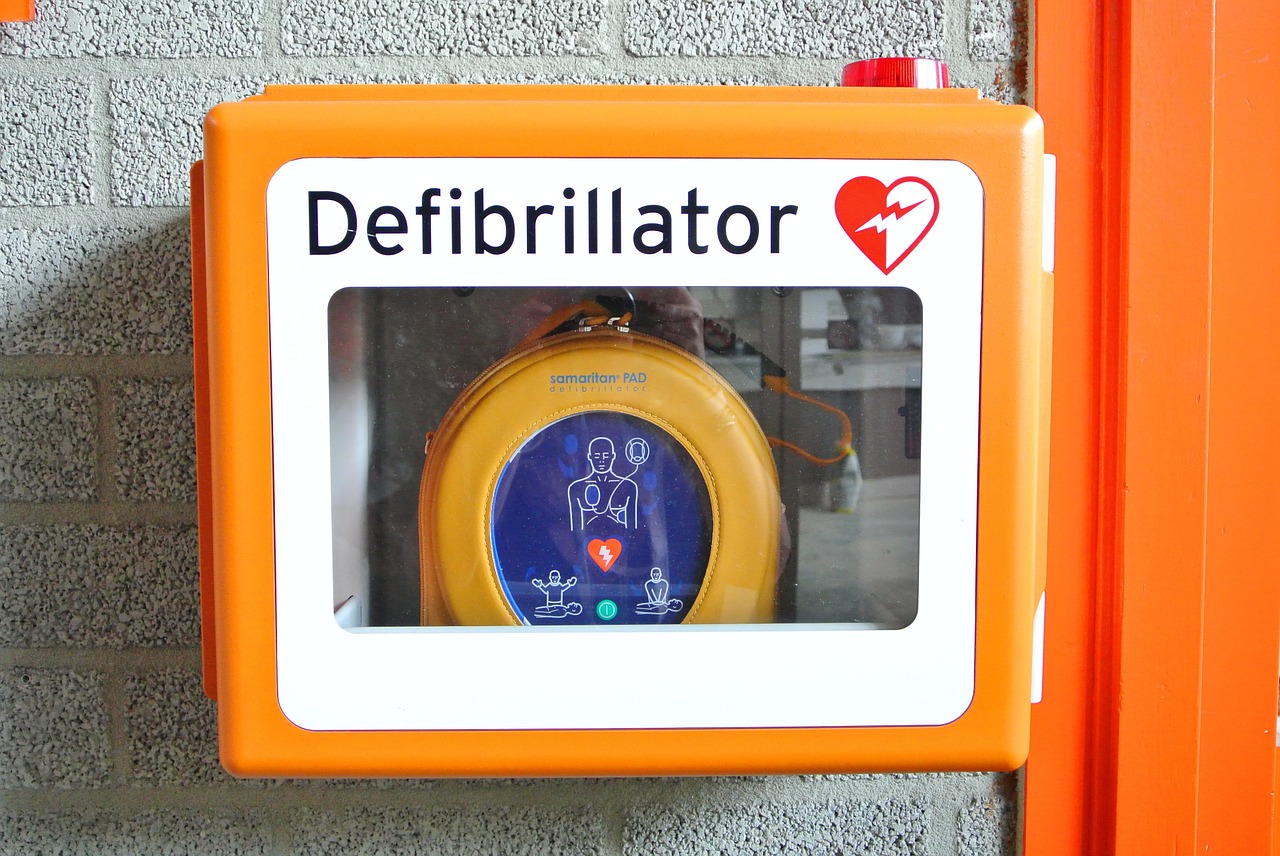Defibrillating machines have made their way into public consciousness in recent years, largely due to prominent footballers falling victim to cardiac arrest.
Just one example is Bolton Wanderers player Fabrice Muamba, who was infamously ‘brought back from the dead’ after his heart stopped beating during an FA Cup quarter-final match in 2012. He credits a defibrillator with saving his life.
As a new petition, which campaigns for the Football Association (FA) to make Public Access Defibrillators (PAD) available at all stadiums takes off on social media, bigger questions of how these machines can save lives in other settings, most notably the workplace, is being asked.
According to the British Heart Foundation, over 30,000 people resuscitated by the ambulance service, suffer from cardiac arrest in Britain every year and sadly, a lack of rapid first aid intervention means that less than 1 in 10 people survive.
At present, the lack of life-saving intervention generally occurs because first responders, such as family members, work colleagues or people in the wider community, fail to recognise the symptoms of a cardiac arrest or lack the skills, knowledge or equipment necessary to intervene effectively.
A survival rate of less than 1 in 10 is worrying, but with training and access to defibrillating equipment it’s actually very easy to improve. In fact, the Resuscitation Council (UK) estimates that early defibrillation can increase survival rates by up to 70%.
Anyone of any age can be hit by sudden cardiac arrest, but the likelihood of incidences occurring increases for older adults, particularly men, individuals with common heart conditions and those who have other lifestyle risk factors such as stress, smoking, obesity and high cholesterol levels.
This means that those most at risk are likely to be of working age and although there are no official statistics about the number of cardiac arrests that occur in the workplace, the greater the workforce, the greater the likelihood of a life-threatening situation arising, becomes.
This places responsibility on employers to ensure that onsite first aiders are adequately trained to intervene and save a life if necessary.
With effect from 31st December 2016, the Health and Safety Executive requires all workplace first aiders who complete First Aid at Work, Emergency First Aid, and refresher training courses to be taught how to use Automated External Defibrillator (AED) equipment.
This does not mean that all workplaces are legally obliged to install defibrillating equipment on their premises, however the potential life-saving benefits of having one onsite will, for many employers, outweigh any associated purchasing costs and their installation is recommended by the British Heart Foundation and Resuscitation Council UK.
These changes also mean that employers are not required to immediately retrain first aiders with the new AED course content. However, as first aid qualifications expire and refresher courses or new trainees are inducted, programmes must include defibrillator training.
It’s important to note that training is intended to give first aiders the knowledge and confidence they need to respond quickly; in the event of a cardiac arrest, every second counts, but everyone, regardless of whether they’re trained or not could be able to use the AED.
Defibrillators are purposefully designed to give any user simple, clear instructions on how to help someone in cardiac arrest so intervention should be encouraged across your workforce.



 Bitcoin
Bitcoin  Ethereum
Ethereum  XRP
XRP  Tether
Tether  Solana
Solana  USDC
USDC  TRON
TRON  Lido Staked Ether
Lido Staked Ether  Cardano
Cardano  Avalanche
Avalanche  Toncoin
Toncoin